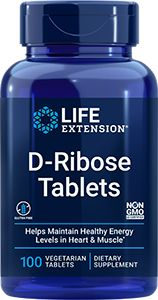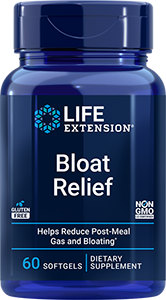
Newsletter
Newsletter
Study finds intake of MK7 form of vitamin K2 does not impact vitamin K-dependent coagulation

One of the functions of vitamin K in the body is to maintain a healthy amount of blood clotting to protect against excessive bleeding. Based on this knowledge, drugs have been developed that antagonize vitamin K to help reduce blood clot formation (thrombosis) in individuals with certain health conditions. A concern has been voiced that adding vitamin K to the diet could contribute to an imbalance in the activities of blood clotting factors, leading to a greater amount of coagulation than is desirable. However, a study reported in the June 11, 2021 issue of the journal Medicine (Baltimore) has revealed that intake of menaquinone-7 (MK-7), a form of vitamin K2, was not associated with this effect.*
“As MK-7 is widely used by healthy and normal population for preventing osteoporosis and cardiovascular disease, physicians’ have raised their concerns on whether MK-7 administration can alter the hemostatic balance by inducing a thrombotic tendency in healthy populations,” Ruijun Ren of the Affiliated Hospital of Southwest Jiaotong University in China and colleagues wrote. “Although no increment of thrombotic events has been reported among vitamin K users, and long-term safety has been proved by many studies, few data are available with regard to the influence of vitamin K on activation of vitamin K dependent coagulation factors in healthy populations.”
The study included 18 men and 22 women between the ages of 25 and 40 years who received 90 micrograms of MK-7 daily for 30 days. Blood samples collected at the beginning of the trial and on days 7 and 30 were analyzed for routine coagulation parameters, including the clotting measurements of activated partial thromboplastin time (APTT), prothrombin time (PT) and thrombin time (TT), and plasma activity of vitamin K dependent coagulation factors II, VII, IX and X. Levels of uncarboxylated prothrombin (carboxylation of proteins by vitamin K is known to play a role in its health effects in other tissues) were also assessed at the beginning and end of the study.
Routine coagulation tests performed at the beginning of the study were within normal ranges and were not significantly different on the 7th and 30th days after beginning MK-7 intake. Similarly, coagulation factors II, VII, IX and X, and levels of uncarboxylated prothrombin were not significantly different at the end of the study in comparison with pre-intake values.
“The dietary intake of vitamin K is believed to be sufficient to ensure the activation of coagulation factors, and the present study is the first to reveal that additional MK-7 administration showed no overactivation of each factor,” the authors announced. “Our study might provide evidence in eliminating the concerns of hemostatic balance for MK-7 intake in healthy individuals to prevent bone and vascular diseases.”
*Ren RR et al. Medicine (Baltimore). 2021 Jun 11;100(23):e26221.
Products
Apply What You've Learned: Vitamin K
- Vitamin K has other roles in the body besides blood clot formation. It is also necessary for bone health and protection against cardiovascular disease, making it more important as we grow older.
- While it was once believed that the vitamin K produced by bacteria in the colon was enough to support good health, it is now understood that healthy people require more than this amount and need to acquire vitamin K from an external source.1
- Vitamin K1 (phylloquinone) occurs mainly in leafy vegetables. Vitamin K2 (menaquinones), which exists in several forms, including MK-4, MK-6, MK-7 and MK-9, occurs in animal products (dairy products, eggs and meat) and in fermented soy products. Since dietary intake of vitamin K can be variable, supplementation helps insure an optimal intake of vitamin K1 and K2.
- People taking a vitamin K antagonist (e.g. warfarin) should consult their prescribing physician before adding a vitamin K supplement to their regimen.
Reference
Featured Life Extension Magazine® Article
What Has Scientists Excited About NAD+, by Jeff Simmons
Nicotinamide adenine dinucleotide (NAD+) is a coenzyme made by all living cells of the body, where it plays several essential roles in metabolism. NAD+ levels decline during aging; however, supplementing with NAD+ is inefficient at elevating NAD+ (due to its instability).
Increasing the level of NAD+ in yeast, worms and mice has been associated with longer life span. Nicotinamide riboside, a form of vitamin B3, enables cells to produce more NAD+, thereby boosting NAD+ levels that become diminished with age. In aged mice, supplementation with nicotinamide riboside increased life span by an average of 5%.
What's Hot
Health Concern
Vitamin K levels lower in stroke patients
A study of chronic stroke patients reported on October 6, 2020 in the journal Nutrients revealed that the majority consumed an amount of vitamin K that was below recommended intake levels.
Blood Clot Prevention
Normal clots are an essential part of the healing process, both inside blood vessels and at external injury sites.
Related Life Extension Magazine® Articles

The Surprising Longevity Benefits of Vitamin K
New research confirms that vitamin K can slash the risk of arterial calcification, coronary heart disease, cancer, type II diabetes, and metabolic syndrome. Most compelling is a study showing that those with the highest intakes of vitamin K are less likely to die from any cause.

Enhancing the Life Saving Benefits of Vitamin K
Vitamin K optimizes bone and blood vessel health, and higher intake has been associated with a lower death rate from any cause by 26%. Researchers have created a broad-spectrum formulation with two new vitamin K compounds to provide greater bioactivity.
Life Extension Magazine® Issue Now Online
In a clinical trial, scientists identified two plant extracts that increased hair growth for 95% of men with male pattern baldness.
Live Forever . . . ish
Join Dr. Mike and Dr. Crystal as they sit down with some of today’s leading medical, health, and wellness experts to discuss a variety of health-related topics. From whole-body health to aging and disease prevention, you’ll get the latest information and helpful advice to help you live your life to the fullest.





